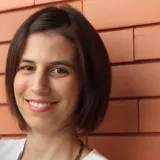
Dr Joana Neves
Senior Lecturer in Mucosal Immunology and Group Leader
Research interests
- Immunology
Biography
Joana Neves is an immunologist who has been studying innate effector lymphocytes such as gamma delta T cells, Natural Killer T (NKT) cells and Innate Lymphoid cells (ILC) and their interactions for the past 10-years. Joana obtained her Licenciatura (4-year BSc) in Biochemistry at Porto University, Portugal in 2006. Has part of those studies Joana worked 6-months at the Biological Research Centre of the Hungarian Academy of Sciences (BRC), Szeged. On the same year, Joana was selected for the PhD Programme in Experimental Biology and Biomedicine (PDBEB) in Coimbra, Portugal and on the following year moved to London to develop her PhD project studying the thymic development of ?? T cells with Professor Dan Pennington, at the Blizard Institute, QMUL, in collaboration with Dr Bruno Silva-Santos, IMM, Lisbon. In 2011, Joana moved to Boston to work with Dr Richard Blumberg, at the Brigham and Women’s Hospital and Harvard Medical School, identifying the protective role of CD1d dependent intestinal epithelial-derived IL-10 in colitis. Joana returned to London in 2014 to join King's. Here Joana started by working with Professor Graham Lord as Marie Sklodowska Curie fellow and has now established her own independent research group. Joana and her team aim to understand how the different cellular compartments of the gut – including immune, epithelial and microbial cells – communicate with each other, to then be able to direct those conversations to promote gut homeostasis. The Neves lab is particularly interested in studying those interactions in the context of intestinal associated diseases such as Inflammatory Bowel Disease (IBD). By working with a combination of human and mouse models, the Neves lab commitment is to accelerate the translation of its discoveries for the benefit of all.
Research
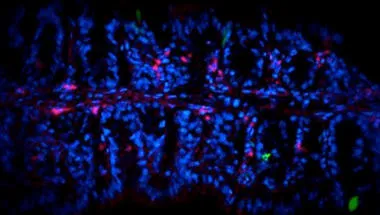
Neves Lab
The Neves lab aims understand how the different cellular compartments of the gut communicate with each other, to then be able to direct those conversations to promote gut homeostasis.
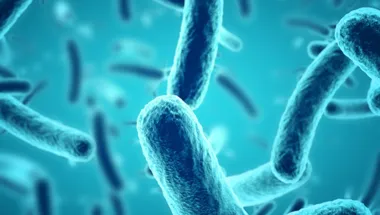
Centre for Host-Microbiome Interactions
Millions of microorganisms live in and on our bodies forming microbiomes on different surfaces. Researchers in the Centre for Host Microbiome Interactions study our relationship with these bacteria and fungi in health or in oral and systemic diseases such as periodontitis, candidiasis, oral cancer and Alzheimer’s disease.
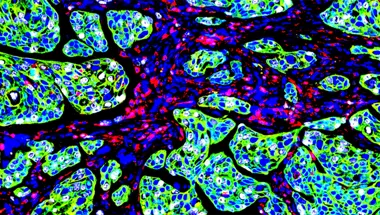
Spatial Biology Network
The Spatial Biology Network is a cross-faculty research interest group that brings together researchers from various disciplines, ranging from technology development and molecular biology, to bioinformatics and clinical translational research, to explore the complexity of spatial biology.
News
Joana Neves project awarded grant from Helmsley Charitable Trust
Joana F. Neves, Senior Lecturer in Mucosal Immunology and Group Leader in the Centre for Host-Microbiome Interactions is the lead investigator on a...
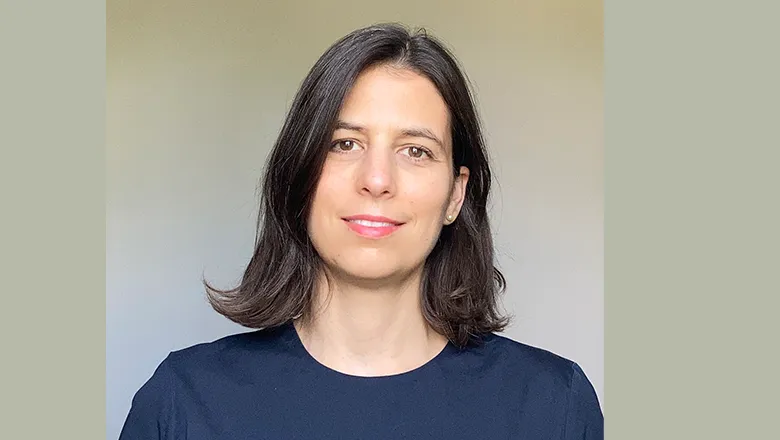
Academic Promotions
Many congratulations to the following members of the Faculty of Dentistry, Oral & Craniofacial Sciences who have been awarded academic promotions during the...
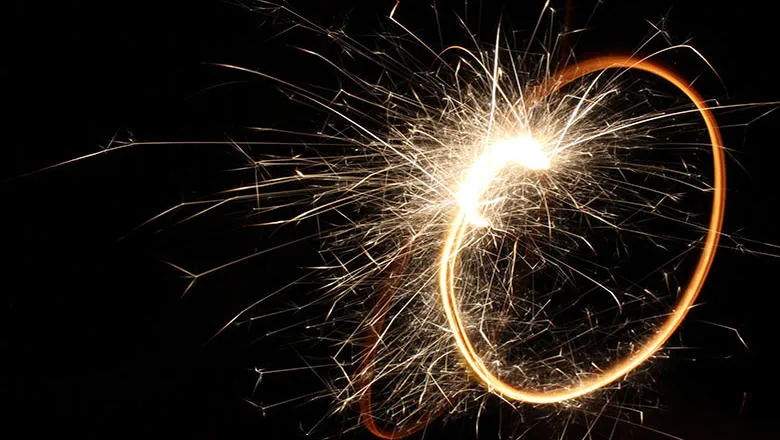
Funding awarded to further develop alternative model to animal research
Human organoid model was originally developed by Neves Lab to generate mucosal immune cell populations.
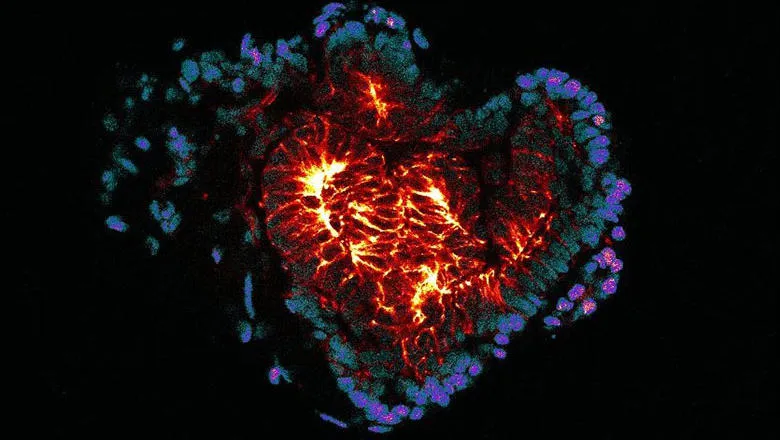
Gut and lung organoids open the door to innate immune cell therapies
King’s researchers have found an innovative approach for expanding and maturing innate immune cells in a dish.
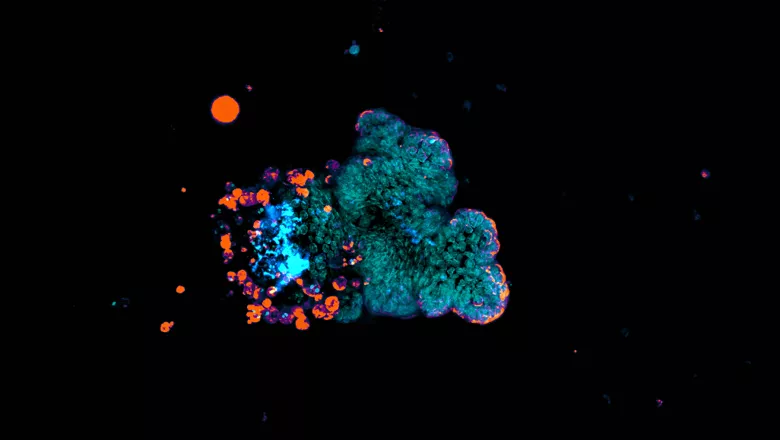
Team awarded King's Together funding to set up platform to study complex disease
An interdisciplinary group of researchers has received a King's Together Strategic Award for a year to establish a platform to facilitate inter- and...
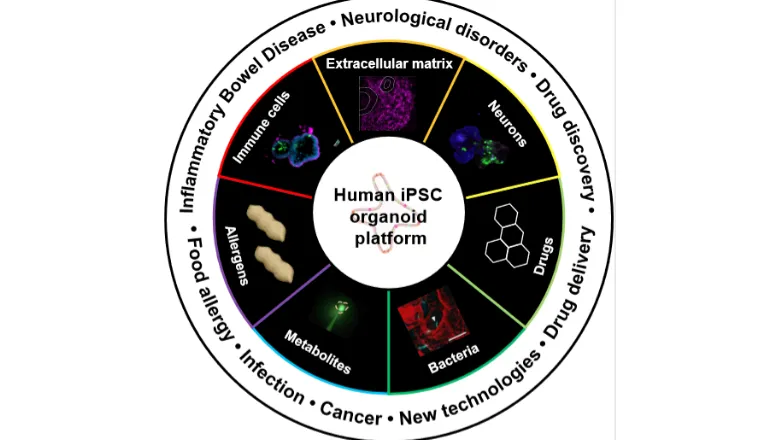
Rare immune cells drive gut repair, but can tip toward cancer or fibrosis in inflammatory bowel disease
Scientists from King’s College London have discovered an unexpected tissue reparative role for a rare immune cell type in the gut.
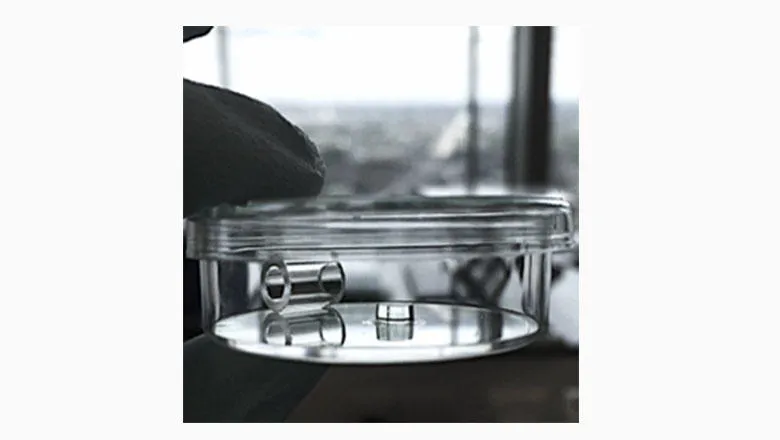
Features
The Science our Women in STEMM create
Find out about some of the activities the students and staff in the Faculty of Dentistry, Oral & Craniofacial Sciences are up to during the Women in STEMM...

Research

Neves Lab
The Neves lab aims understand how the different cellular compartments of the gut communicate with each other, to then be able to direct those conversations to promote gut homeostasis.

Centre for Host-Microbiome Interactions
Millions of microorganisms live in and on our bodies forming microbiomes on different surfaces. Researchers in the Centre for Host Microbiome Interactions study our relationship with these bacteria and fungi in health or in oral and systemic diseases such as periodontitis, candidiasis, oral cancer and Alzheimer’s disease.

Spatial Biology Network
The Spatial Biology Network is a cross-faculty research interest group that brings together researchers from various disciplines, ranging from technology development and molecular biology, to bioinformatics and clinical translational research, to explore the complexity of spatial biology.
News
Joana Neves project awarded grant from Helmsley Charitable Trust
Joana F. Neves, Senior Lecturer in Mucosal Immunology and Group Leader in the Centre for Host-Microbiome Interactions is the lead investigator on a...

Academic Promotions
Many congratulations to the following members of the Faculty of Dentistry, Oral & Craniofacial Sciences who have been awarded academic promotions during the...

Funding awarded to further develop alternative model to animal research
Human organoid model was originally developed by Neves Lab to generate mucosal immune cell populations.

Gut and lung organoids open the door to innate immune cell therapies
King’s researchers have found an innovative approach for expanding and maturing innate immune cells in a dish.

Team awarded King's Together funding to set up platform to study complex disease
An interdisciplinary group of researchers has received a King's Together Strategic Award for a year to establish a platform to facilitate inter- and...

Rare immune cells drive gut repair, but can tip toward cancer or fibrosis in inflammatory bowel disease
Scientists from King’s College London have discovered an unexpected tissue reparative role for a rare immune cell type in the gut.

Features
The Science our Women in STEMM create
Find out about some of the activities the students and staff in the Faculty of Dentistry, Oral & Craniofacial Sciences are up to during the Women in STEMM...

